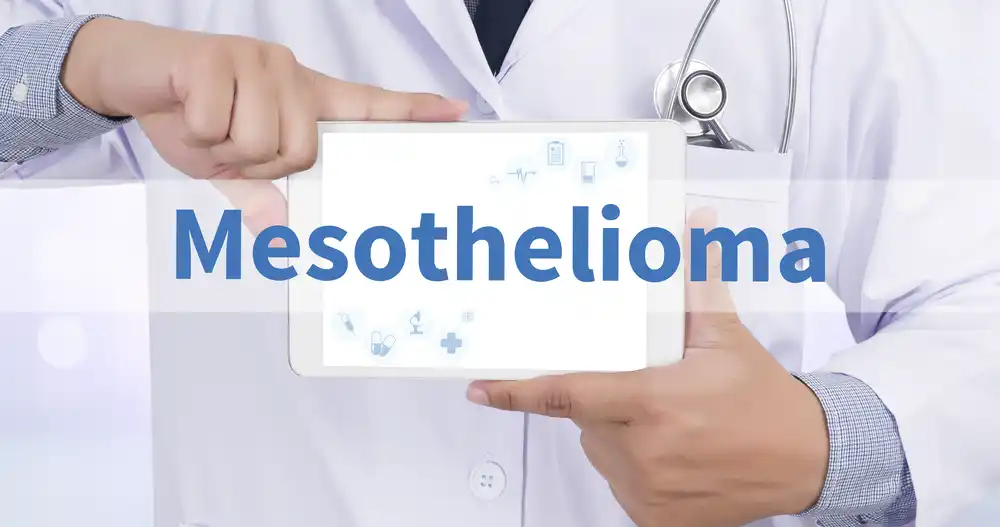Emory University: Your Complete Guide to Academics, Admissions, Rankings, and Campus Life in Atlanta

Emory University is a highly regarded private research university in Atlanta, Georgia, known for its strong academics, world-class healthcare network, and thriving student life. With two undergraduate pathways—Emory College of Arts and Sciences in Atlanta and Oxford College in nearby Oxford, GA—students can tailor their undergraduate experience while accessing a broad range of research, internship, and community engagement opportunities.
Whether you’re researching Emory University for undergraduate, graduate, or professional study, this guide breaks down what you need to know about programs, admissions, rankings, scholarships, campus life, and more.
What makes Emory University stand out
- Top-tier academics with a liberal arts foundation and powerful research opportunities
- Global reputation in medicine, public health, nursing, and business
- Prime location in Atlanta with strong internship pipelines and Fortune 500 connections
- Emory Healthcare and the Winship Cancer Institute offer unmatched clinical and research experiences
- Two undergraduate entry points: Emory College (Atlanta) and Oxford College (Oxford, GA)
Where is Emory University? Location and campuses
Emory University’s main campus sits in the tree-lined Druid Hills neighborhood of Atlanta—one of the city’s most historic and scenic areas. It’s close to Midtown and downtown, the CDC, major hospitals, museums, theaters, and tech hubs. The campus blends classic collegiate architecture with modern labs, libraries, and green spaces.
- Emory College of Arts and Sciences (Atlanta): The primary undergraduate campus, home to most majors, student organizations, and the Goizueta Business School.
- Oxford College of Emory University (Oxford, GA): A distinctive two-year program with small classes and close-knit advising. After completing sophomore year, students continue to the Atlanta campus to finish their degree.
On campus, you’ll find the Michael C. Carlos Museum, the Robert W. Woodruff Library, Lullwater Preserve, and easy access to Emory Village for dining and coffee. The university’s shuttle system connects key buildings, residence halls, and nearby neighborhoods.
Emory University at a glance
- Type: Private research university
- Location: Atlanta, Georgia (main campus) and Oxford, Georgia (Oxford College)
- Noted strengths: Pre-med, public health, nursing, business, biology, neuroscience, chemistry, economics, psychology, computer science
- Healthcare network: Emory Healthcare, the largest academic health system in Georgia
- Research highlights: Winship Cancer Institute (NCI-designated Comprehensive Cancer Center), Emory Vaccine Center, Emory National Primate Research Center
- Athletics: NCAA Division III, University Athletic Association (Emory Eagles)
- Distinctions: The Carter Center is affiliated with Emory University
Top academics and majors at Emory University
Emory blends the depth of a major research university with the focus and support of a liberal arts college. Whether you’re headed toward medicine, business, research, public service, or the arts, you’ll find programs designed to build critical thinking, communication, and real-world experience.
Undergraduate colleges and standout programs
- Emory College of Arts and Sciences: The heart of undergraduate education, offering majors from biology and economics to English and computer science.
- Goizueta Business School: Known for analytics, consulting, finance, and entrepreneurship, with strong corporate connections in Atlanta and beyond.
- Oxford College: A smaller, immersive liberal arts experience for the first two years with seminar-style classes and leadership opportunities.
Graduate and professional schools
- School of Medicine: Robust MD and research pathways with access to Emory Healthcare hospitals and clinics.
- Rollins School of Public Health: A national leader with strong ties to the CDC and global health organizations.
- Nell Hodgson Woodruff School of Nursing: Renowned for clinical training and advanced practice programs.
- Emory School of Law: Offers JD, LLM, and specialized certificates with a focus on experiential learning.
- Candler School of Theology: An established hub for theological study and ministry.
- Laney Graduate School: Advanced degrees across the humanities, sciences, and social sciences.
Research, healthcare, and innovation
Emory University is a powerhouse in life sciences, public health, and translational medicine. Students at all levels benefit from access to research labs, clinical sites, and interdisciplinary projects.
Key research hubs and partners
- Winship Cancer Institute: The only National Cancer Institute-designated Comprehensive Cancer Center in Georgia.
- Emory Vaccine Center: Global leader in immunology and infectious diseases.
- Emory National Primate Research Center: Advances in neuroscience, behavior, and biomedical research.
- Emory Healthcare: Extensive network of hospitals and clinics supporting clinical learning and research.
- CDC collaborations: Emory’s proximity to the Centers for Disease Control and Prevention helps fuel internships, joint projects, and public health careers.
Emory University rankings and reputation
Emory University consistently ranks among the top universities in the United States and is widely recognized for research impact, undergraduate teaching, and professional programs. Its public health, nursing, business, and medical programs are nationally respected. While rankings vary by publication and year, Emory’s reputation for academic rigor and outcomes is strong across disciplines.
Admissions: How to get into Emory University
Emory University admissions are competitive. The university seeks students who show intellectual curiosity, community engagement, leadership, and a good academic fit.
Admission pathways
- Early Decision I and II (binding)
- Regular Decision (non-binding)
- First-year applicants can choose Emory College, Oxford College, or both pathways on their application.
Application components typically include
- Common Application with Emory-specific questions
- High school transcript and counselor report
- Teacher recommendations
- Personal essay and short-answer responses
- Optional test scores (Emory has been test-optional in recent cycles—check current policy)
- Activities, honors, and any supplemental materials (such as arts portfolios, if applicable)
Suggested application timeline
- Explore programs and choose a pathway: Decide between Emory College, Oxford College, or both.
- Draft your essays early: Highlight fit with Emory’s values, curiosity, and community impact.
- Request recommendations: Ask teachers who know your strengths well.
- Complete financial aid forms: Submit the FAFSA and CSS Profile by the posted deadlines.
- Submit your application: Track your portal for any checklist updates.
- Consider an interview (if offered): Some programs may offer or recommend optional conversations with staff or alumni.
Tips to strengthen your application
- Show depth in a few activities rather than listing many.
- Demonstrate interest in research, service, healthcare, or leadership aligned with Emory’s mission.
- Use your essays to share authentic experiences and voice.
- If applying to both Emory and Oxford, explain why each path fits your learning style.
Tuition, costs, and Emory scholarships and financial aid
Emory University is a significant investment, but there are robust options to make it affordable for admitted students. Costs vary by program and year, so always confirm with Emory’s official site.
Financial aid and scholarships
- Need-based aid: Emory meets demonstrated financial need for eligible students.
- Emory Advantage: As of recent updates, the Emory Advantage program reduces or eliminates need-based loans for many families below certain income thresholds. Check the latest details and eligibility.
- Merit scholarships: The Emory Scholars Program (including Emory Scholars, Oxford Scholars, and Goizueta Scholars) offers partial to full-tuition awards and enrichment opportunities. Competitive candidates are automatically considered when applying by the scholarship deadline.
- External scholarships: Students often stack outside scholarships with Emory aid per university policies.
Campus life, housing, and athletics
Emory’s campus culture blends intellectual energy with a supportive, inclusive community. You’ll find abundant opportunities to get involved and make an impact.
Student life highlights
- 400+ student organizations: Cultural groups, service clubs, debate, tech, arts, entrepreneurship, and more.
- Arts and culture: Student theater, a-capella groups, film and media projects, and museum events.
- Service and leadership: Community engagement, volunteering, and social innovation programs.
- Greek life: Available for students who seek it, alongside many non-Greek communities.
Housing and dining
- Residential life: First- and second-year students typically live on campus, fostering a close-knit community.
- Dining: Multiple dining halls, cafes, and a popular weekly farmers market during the academic year offer fresh, diverse options, including vegetarian, vegan, and allergen-friendly choices.
Athletics and recreation
- NCAA Division III: Emory Eagles compete in the University Athletic Association (UAA) with strong traditions in swimming, tennis, track and field, and more.
- Fitness and wellness: Modern recreation centers, club sports, and intramural leagues.
Note: Emory does not sponsor a varsity football team.
Careers, internships, and alumni network
Atlanta is a major advantage for Emory students. The city hosts diverse industries—healthcare, tech, consulting, media, logistics, and nonprofits—plus numerous Fortune 500 headquarters.
Career pathways
- Internships: Opportunities at the CDC, Emory Healthcare, The Home Depot, Delta Air Lines, The Coca-Cola Company, and startups across the metro area.
- Career Center: Coaching, resume support, networking events, and employer fairs.
- Alumni network: Graduates excel in medicine, public health, business, law, policy, and the arts around the globe.
The Carter Center connection
The Carter Center, founded by former U.S. President Jimmy Carter and Rosalynn Carter, is affiliated with Emory University and focuses on human rights, democracy, and global health—providing learning and internship opportunities with real-world impact.
Is Emory University right for you?
Choose Emory University if you’re looking for:
- A selective, research-driven university with a liberal arts foundation
- Top-tier programs in pre-med, public health, nursing, business, and the sciences
- Proximity to world-class healthcare, research institutes, and the CDC
- A vibrant, diverse student body and strong campus community
- A large city environment with green campus spaces
Visiting Emory University
Planning a visit is one of the best ways to experience Emory. You can:
- Sign up for an information session and student-led campus tour.
- Explore Emory College in Atlanta and, if interested, arrange a separate visit to Oxford College.
- Build time to see Atlanta highlights—Midtown, BeltLine, museums, and neighborhoods around Druid Hills.
Conclusion
Emory University combines the best of a liberal arts education with the resources of a major research institution in a dynamic city. From the Goizueta Business School and Rollins School of Public Health to Emory Healthcare and the Winship Cancer Institute, Emory provides unmatched pathways into healthcare, research, and global problem-solving. With two undergraduate entry points, generous financial aid, and a collaborative campus culture, Emory University is a compelling choice for students seeking both academic rigor and real-world impact.
FAQs about Emory University
What is Emory University known for?
Emory is known for strong pre-med preparation, public health, nursing, and business programs; its Emory Healthcare system; top-tier research in vaccine science and cancer; and close ties to the CDC and The Carter Center.
Is Emory University hard to get into?
Yes, Emory is selective. Competitive applicants present strong academics, meaningful activities, and thoughtful essays. Early Decision can be a good option for students who are certain Emory is their top choice.
What’s the difference between Emory College and Oxford College?
Emory College is on the Atlanta campus and offers the full four-year experience. Oxford College is a two-year program on the Oxford, GA campus with small, discussion-focused classes. After sophomore year, Oxford students continue to the Atlanta campus to complete their Emory bachelor’s degree.
Does Emory University have good pre-med and public health programs?
Absolutely. Emory is a national leader in health-related fields. Students benefit from access to Emory Healthcare, the Winship Cancer Institute, and partnerships with the CDC, plus strong advising for medical and graduate school admissions.
Is Emory test-optional?
Emory has been test-optional in recent application cycles. Policies can change, so always check Emory’s admissions site for the latest SAT/ACT requirements.
How much does Emory University cost, and what financial aid is available?
Tuition and fees change annually. Emory offers need-based aid, merit scholarships (through the Emory Scholars Program), and initiatives like Emory Advantage to reduce loan burden for eligible families. Use Emory’s Net Price Calculator and review financial aid deadlines.
What division are Emory athletics?
Emory competes in NCAA Division III within the University Athletic Association (UAA). The university fields many varsity teams but does not have a varsity football program.






